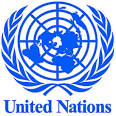

The number of civilians killed in Afghanistan in 2013 has increased by 23 percent compared to last year, the United Nations Assistance Mission reports. The U.N. says most of the deaths were at the hands of anti-government forces.
The first six months of 2013 have been grim for Afghanistan’s civilian population. Caught in the crossfire of a fight for power between Taliban and other militants and the U.S.-backed Afghan government, civilians have been dying by the hundreds.
The mid-year report by the U.N. Assistance Mission in Afghanistan, or UNAMA, says that more than 1,300 civilians were killed and more than 2,500 injured in the first half of the year.
The report says most people are being killed by IEDs, or homemade bombs, that anti-government forces are hiding in heavily populated areas, like markets and busy roads. The Taliban rejected the report as propaganda.
But Georgette Gagnon, UNAMA’s director of Human Rights in Afghanistan, called for an end to the militants’ use of IEDs.
“We observed an increase in the Taliban's use of something called remote-controlled IEDs which are supposedly more discriminate -- meaning they can target a military target more precisely -- we have seen increased use in those types of of IEDs," Gagnon said. "However, the way they are being placed has been indoctrinate, meaning that they are placing these IEDs and making them go off in places that civilians frequent, such as parks, bazaars and busy public roads."
According to the U.N. report, civilians are too often trapped in the gun and bomb battles raging in provinces where international forces have withdrawn and pro- and anti- government forces are fighting for control.
With international combat forces due to leave by the end of 2014, Gagnon says the increase in ground battle deaths is a worrying development.
“This is a new trend that poses an increasing risk to Afghan children, women and men," Gagnon said.
Afghan women and children are increasingly bearing more of the brunt of the violence. UNAMA documented a steep 72 percent increase in the killing and maiming of children from IED attacks.
Angheza Shinwari, a member of the provincial council of Afghanistan's eastern Nangarhar province, says Afghan security forces are not prepared to defend the population.
She says that she is not optimistic about the security transition process. She praised Afghan men as being "very brave" and having God to help them. But she is not hopeful for what happens next.
The Taliban rejected the U.N. report as baseless propaganda. It said in a statement released to the media that the nine percent of civilian deaths that the U.N. attributes to pro-government forces held “no resemblance” to the ground realities.
No comments:
Post a Comment